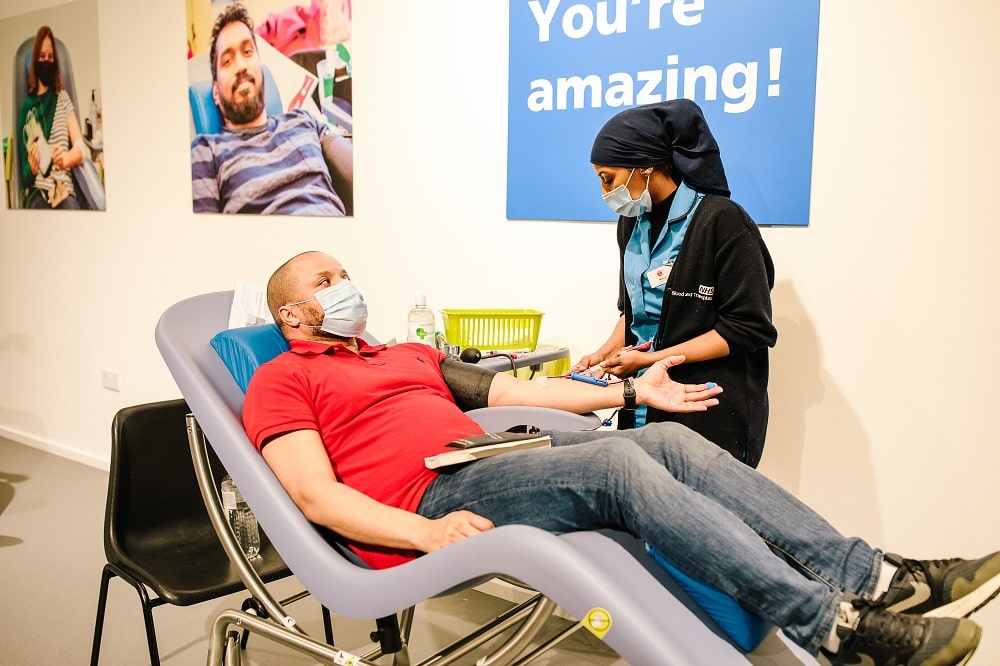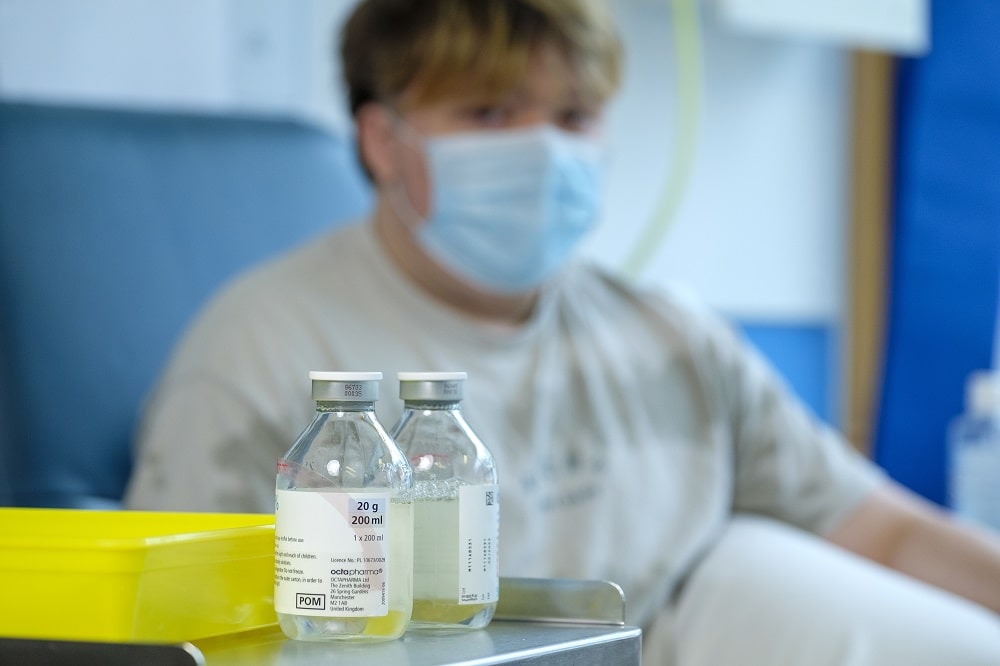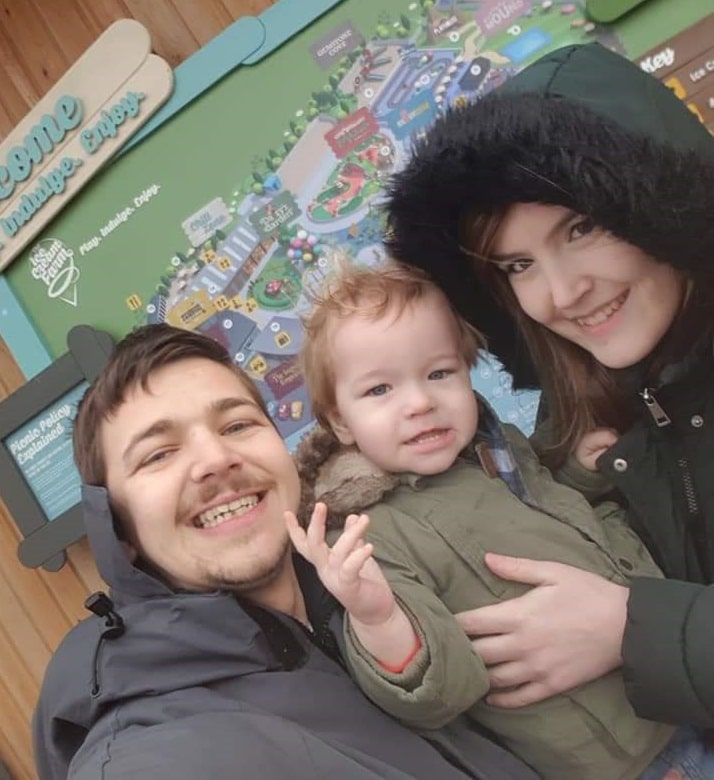Around 1 million blood donations a year to be used to make lifesaving plasma medicine
England’s 770,000 blood donors will begin saving lives in an extra way from today (17 August 2021).
From today, plasma will be recovered from their blood donation and then used to make a medicine which treats rare immune diseases.
In time, around 1 million blood donations a year will have this extra, lifesaving use.
The plasma will bolster NHS supplies of the medicine – known as immunoglobulin – which is facing supply pressures made worse by coronavirus (COVID-19).
What is plasma?
Most of your blood is actually plasma, around 55%. This is the fluid which carries the red blood cells, antibodies and other components around your body.
After you donate blood, the red cells are separated out and it’s only the red blood cells which are given in a normal blood transfusion.
Most of the leftover plasma could not be used for patient treatment and none could be used for this immunoglobulin medicine – until now.
How plasma can help save lives
The plasma can save lives because it contains antibodies, which fight infections. Over several months, the antibodies will be concentrated into the immunoglobulin medicine.
The medicine saves lives in two main ways. It can boost a patient’s immune system. It can also calm down an immune system that is attacking the patient’s own body.
Around 17,000 people receive these medicines a year. Many recipients are clinically vulnerable people who have been shielding during the coronavirus pandemic.
The UK currently relies solely on imports of immunoglobulin medicine. There are long-term pressures on international supplies – made worse by coronavirus - and using plasma from blood donors in England will bolster long-term NHS supplies.
Collection began after the Government decided this year that a historic restriction on using plasma from UK donors could safely be lifted.
Rollout across England
The first blood donations to be used in this way will be taken today at Manchester Norfolk House Blood Donor Centre, and by mobile blood donation teams covering Liverpool, Taunton and Bath. This approach will be rolled out across England over several months.
When fully in place around 250,000 litres of plasma from around 1 million blood donations will be used for these medicines each year. The red blood cells will continue to be used as normal so there will be no impact on blood supply.
Gerry Gogarty, NHS Blood and Transplant Lead for Plasma for Medicines, said: "Your blood is mostly made up of plasma and it contains the antibodies which fight infections. Those antibodies can save the lives of people with faulty immune systems.
"By recovering plasma from blood donations, we can improve long-term supplies of immunoglobulin medicine, and each generous blood donation will go even further in helping to save the lives.
"This is a huge new step forward for the wider NHS and the thousands of people who rely on immunoglobulins."
Minister for Innovation Lord Bethell said: "We are committed to finding and delivering the world’s most innovative treatments for the patients who need them.
"This is a historic day for the future of blood donations in England, marking a new beginning for not only the absolutely vital donation process, but for the thousands of people whose lives will be changed by these treatments too.
"I urge as many people as possible to undertake this simple but heroic action of donating blood, and you can be extremely proud that your contributions are saving more lives."
Who plasma helps
Kes Earl and her family are visiting Manchester Norfolk House today to see some of the first donations used in this way, after Kes and her son Trevor were both treated with immunoglobulins.
 Trevor was born with neonatal alloimmune thrombocytopenia - his mum’s immune system was destroying his platelets. He needed resuscitation at birth and was treated in neonatal intensive care, receiving immunoglobulin. Kes went on to have immunoglobulin herself during her second pregnancy, to prevent the same happening to her younger son Wyatt.
Trevor was born with neonatal alloimmune thrombocytopenia - his mum’s immune system was destroying his platelets. He needed resuscitation at birth and was treated in neonatal intensive care, receiving immunoglobulin. Kes went on to have immunoglobulin herself during her second pregnancy, to prevent the same happening to her younger son Wyatt.
Kes, aged 24, a paralegal from Tranmere, said: "Immunoglobulins saved my family. Plasma is the reason I have two healthy little boys that keep me on my toes.
"I am so happy that plasma from blood donors is now being be used for immunoglobulins, to help make sure there’s enough available."
In addition to plasma being recovered from blood donations, people can also now donate plasma directly, at 11 new plasma donor centres around the country.
Find out more about donating plasma
By both recovering plasma from blood donations, and taking dedicated plasma donations, NHS Blood and Transplant will create a significant domestic supply of plasma and reduce the current reliance on immunoglobulins made from imports.
Media contacts
For additional information please contact the NHS Blood and Transplant press office on 01923 367 600 or pressoffice@nhsbt.nhs.uk
